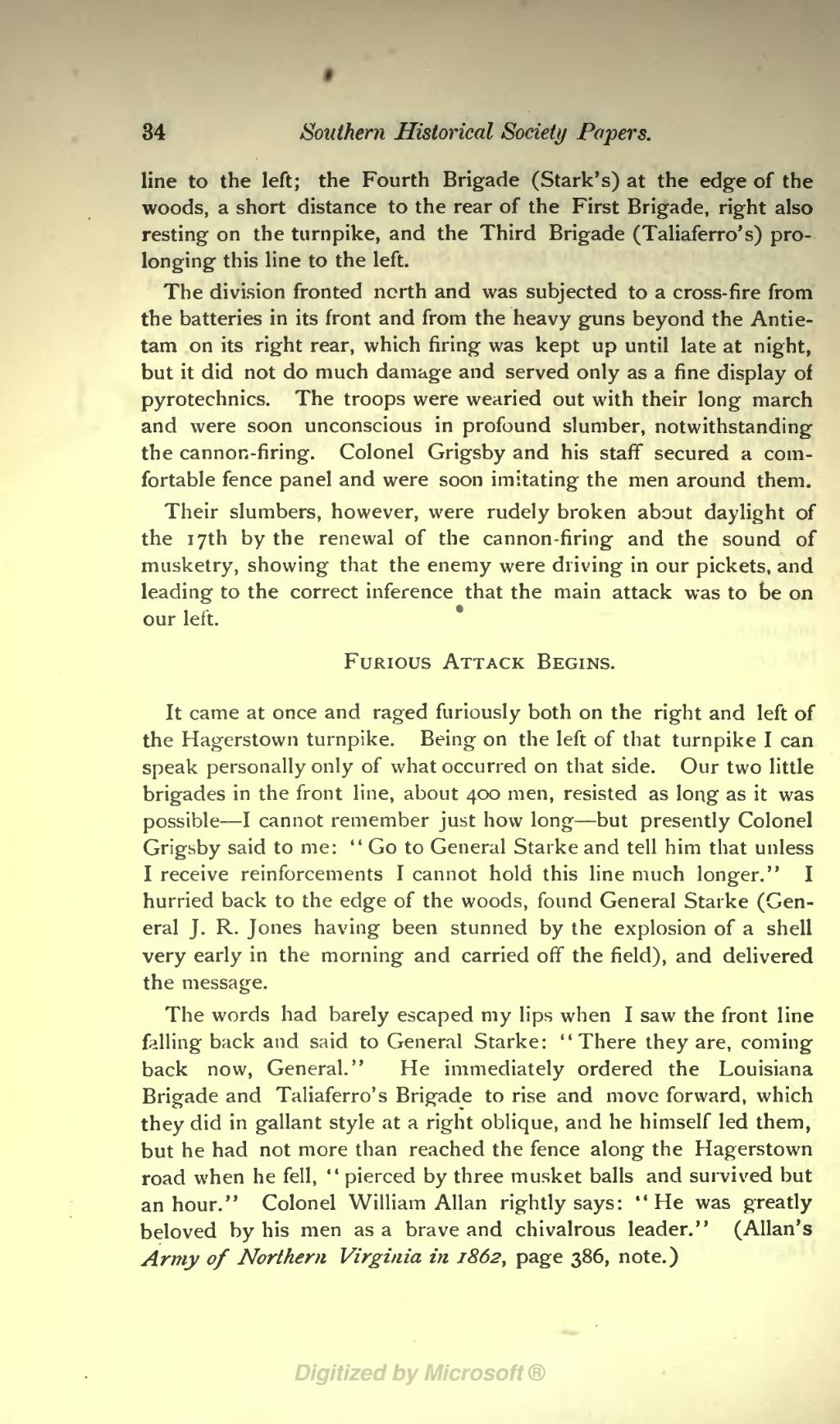34 Southern Historical Society Papers.
line to the left; the Fourth Brigade (Stark's) at the edge of the woods, a short distance to the rear of the First Brigade, right also resting on the turnpike, and the Third Brigade (Taliaferro's) pro- longing this line to the left.
The division fronted north and was subjected to a cross-fire from the batteries in its front and from the heavy guns beyond the Antie- tam on its right rear, which firing was kept up until late at night, but it did not do much damage and served only as a fine display of pyrotechnics. The troops were wearied out with their long march and were soon unconscious in profound slumber, notwithstanding the cannon-firing. Colonel Grigsby and his staff secured a com- fortable fence panel and were soon imitating the men around them.
Their slumbers, however, were rudely broken about daylight of the iyth by the renewal of the cannon-firing and the sound of musketry, showing that the enemy were driving in our pickets, and leading to the correct inference that the main attack was to be on our left.
FURIOUS ATTACK BEGINS.
It came at once and raged furiously both on the right and left of the Hagerstown turnpike. Being on the left of that turnpike I can speak personally only of what occurred on that side. Our two little brigades in the front line, about 400 men, resisted as long as it was possible I cannot remember just how long but presently Colonel Grigsby said to me: " Go to General Starke and tell him that unless I receive reinforcements I cannot hold this line much longer." I hurried back to the edge of the woods, found General Starke (Gen- eral J. R. Jones having been stunned by the explosion of a shell very early in the morning and carried off the field), and delivered the message.
The words had barely escaped my lips when I saw the front line falling back and said to General Starke: "There they are, coming back now, General." He immediately ordered the Louisiana Brigade and Taliaferro's Brigade to rise and move forward, which they did in gallant style at a right oblique, and he himself led them, but he had not more than reached the fence along the Hagerstown road when he fell, " pierced by three musket balls and survived but an hour." Colonel William Allan rightly says: "He was greatly beloved by his men as a brave and chivalrous leader." (Allan's Army of Northern Virginia in 1862, page 386, note.)
